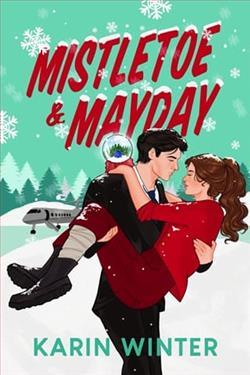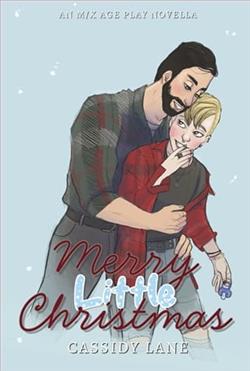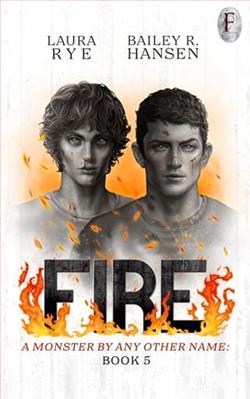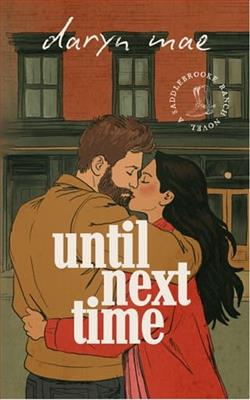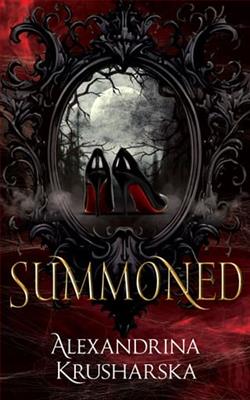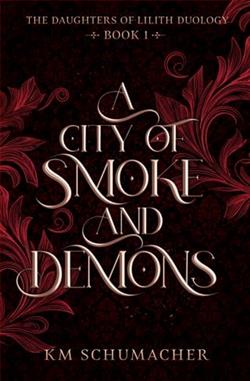Page 24 of The Baron's Reluctant Bride
“Very well,” she said at last. “A practical partnership, then.”
He inclined his head. “I thought we might agree on that.”
“You said something about not interfering in my routines,” she continued, voice calm. “And not making demands of me.”
“I did,” he confirmed. “You’ll have freedom of your time, your pursuits. I ask only for civility—and discretion, of course.”
“How very... generous,” she replied with a voice as dry as chalk.
A muscle in his jaw ticked, but he accepted the jab with a faint smile. “I hope we might be allies, Lady Brokeshire, if nothing more.”
She nodded slowly, though her thoughts were elsewhere entirely. What was the real cost of this alliance? He had agreed too quickly. Too cleanly. Her family’s scandal was damning—but surely a man like Jameson Brookfield did not tether himself to such a match without extracting something far more valuable in return.
What had hereallycome to gain?
He excused himself soon after, murmuring something about a late appointment. As the door closed behind him, Gemma remained by the fire, brandy forgotten, the warmth at her back doing little to dispel the chill that had crept into her bones.
***
Later that night, Jameson stepped into Edward Hawthorne’s townhouse, shutting the door against the bitter wind that had picked up along Brook Street. The cold clung to his coat, but it was the quiet inside that struck him first—dense, well-aged silence, broken only by the low crackle of the fire and the faint clink of glass.
He shed his coat with a swift motion, brushing snow from his shoulders, and allowed himself a slow exhale. The townhouse, like its owner, was solid, composed, and steeped in quiet authority. A place built for strategy and secrets, not sentiment.
Edward sat in his favorite chair near the hearth, a heavy tumbler of brandy resting in one hand, his legs crossed, posture at once relaxed and watchful. He didn’t rise or call for a servant. He didn’t need to. His gaze alone was enough to summon confessions.
“You’re late,” Edward said after a beat, not bothering to mask the hint of censure beneath his smooth tone.
“I had to play the dutiful husband,” Jameson replied, making his way toward the fire.
Edward raised a single brow. “How novel.”
Jameson gave a tired half-smile and dropped into the chair opposite him. The leather creaked beneath his weight. The warmth of the fire licked at his shins, but it did little to thaw the tension still coiled in his chest.
“And how goes the charade?” Edward asked, swirling his brandy.
“Better than expected,” Jameson admitted. “She’s sharp. Observant. Composed, even when thrown into unfamiliar waters.”
Edward nodded slowly, but didn’t look away. “And yet your mind isn’t here.”
Jameson glanced at the flames, jaw tight. The flicker of orange reflected in his eyes, shadows dancing across the fine angles of his face. “It’s Thorne. He’s become bold—bolder than he has any right to be.”
Edward didn’t answer immediately. Instead, he reached into the stack of correspondence on the side table beside him and held out a folded letter.
“Then you’ll want to see this.”
Jameson took it and unfolded the parchment quickly. The writing was remarkably well formed, however it offered no clue as to the identity of the writer. Nonetheless the message was clear. His eyes scanned the lines, his mouth flattening into a grim line.
“Damn it,” he muttered. “He’s meeting with investors?”
Edward nodded. “Quietly, discreetly. But yes. He’s making overtures. Aligning himself with anyone discontented enough to resent your leverage.”
“He means to build a counterweight,” Jameson said darkly, refolding the letter with slow deliberation. “If he gets the right backing, he’ll fracture the entire network.”
Edward studied him over the rim of his glass. “Then the time to strike cleanly may be slipping.”
“I shall not permit it.” Jameson said. The words were quiet, but hard-edged.
Edward didn’t flinch at the conviction, he had seen it before. That same quiet fury had driven Jameson in the years after his brother’s death, when grief had nearly hollowed him out. Edward had seen a young man teetering on the edge of ruinand offered him something to climb toward—structure, control, purpose.








